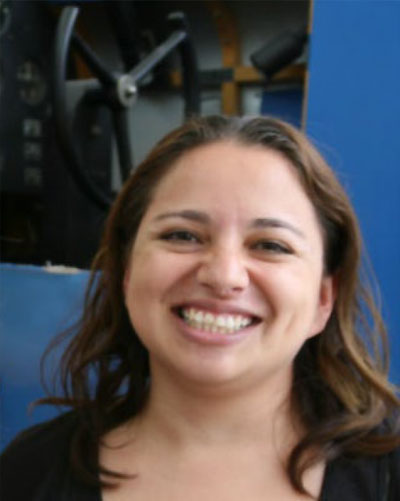Principal Investigator

Esther Guzmán, Ph.D.
Research Professor
772.242.2452
eguzman9@fau.edu
Postdoctoral Investigator, 2005-2007, Harbor Branch Oceanographic Institution, Ft. Pierce, Florida
Postdoctoral Fellow, 2004- 2005, Henry Ford Health System, Detroit, Michigan
Ph.D. Immunology, 2004, University of Texas MD Anderson Cancer Center, Houston, Texas
B.S. Molecular Biology/Biotechnology, 1996, Salem-Teikyo University, Salem, West Virginia
My research focuses on finding marine natural products that have the potential to be novel therapeutics against the over a hundred diseases grouped under the term cancer. These include using marine natural products to prevent cancer formation, eliminate existing tumors, stop metastasis, re-activate an immune response against tumors, or use them as tools to further our understanding of these diseases. While progress has been made against many forms of cancer, some cancers—such as pancreatic and lung cancer—still have dismal survival rates, highlighting the urgent need for new therapies to treat these and other aggressive cancers. I lead the Cancer Cell Biology Group of the Marine Biomedical and Biotechnology Research Program at Harbor Branch Oceanographic Institute (HBOI). Marine natural products represent a wealth of potential treatments against cancer that have yet to be fully characterized. My work at HBOI has resulted in the discovery of novel anti-metastatic properties and inhibition of autophagy for manzamine A in pancreatic cancer cells; the ability of furospinulosin 1 to target triple negative breast cancer cells only when grown as spheroids, anti-tumor activity against pancreatic cancer by leiodermatolide, the inhibition of autophagy by scalarin in pancreatic cancer cells, the inhibition of topoisomerase II by isobatzelline E; the anti-mitotic effects of aphrocallistin and its derivatives, the inhibition of NFκB by spongiatriol and microsclerodermin A in pancreatic cancer cells (to name a few), as well as the development of cell based targeted phenotypic assays to identify novel anticancer bioactivities for marine natural compounds.